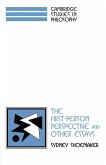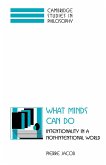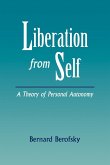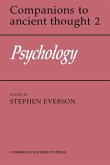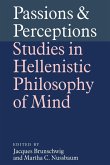This is a book about sensory states and their apparent characteristics. It confronts a whole series of metaphysical and epistemological questions and presents an argument for type materialism: the view that sensory states are identical with the neural states with which they are correlated. According to type materialism, sensations are only possessed by human beings and members of related biological species; silicon-based androids cannot have sensations. The author rebuts several other rival theories (dualism, double aspect theory, eliminative materialism, functionalism), and explores a number of important issues: the forms and limits of introspective awareness of sensations, the semantic properties of sensory concepts, knowledge of other minds, and unity of consciousness. The book is a significant contribution to the philosophy of mind, and has much to say to psychologists and cognitive scientists.
Table of contents:
Preface; Part I. Introduction: 1. Topics and themes; Part II. The Mind-Body Problem: 2. The failings of dualism and the double-aspect theory; 3. The failings of functionalism; 4. In defense of type materialism; Part III. Introspection: 5. Introspective awareness of sensations; 6. Introspection and the skeptic; Part IV. Sensory Concepts: 7. Concepts of bodily sensations: Their semantic properties; 8. Concepts of visual sensations: Their content and their deployment; Part V. Other Minds: 9. Knowledge of other minds; 10. Unity of consciousness, other minds, and phenomenal space; Index.
This is a book about sensory states and their apparent characteristics. It confronts a whole series of metaphysical and epistemological questions and presents an argument for type materialism: the view that sensory states are identical with the neural states with which they are correlated.
The book is a significant contribution to the philosophy of mind, and has much to say to psychologists and cognitive scientists.
Table of contents:
Preface; Part I. Introduction: 1. Topics and themes; Part II. The Mind-Body Problem: 2. The failings of dualism and the double-aspect theory; 3. The failings of functionalism; 4. In defense of type materialism; Part III. Introspection: 5. Introspective awareness of sensations; 6. Introspection and the skeptic; Part IV. Sensory Concepts: 7. Concepts of bodily sensations: Their semantic properties; 8. Concepts of visual sensations: Their content and their deployment; Part V. Other Minds: 9. Knowledge of other minds; 10. Unity of consciousness, other minds, and phenomenal space; Index.
This is a book about sensory states and their apparent characteristics. It confronts a whole series of metaphysical and epistemological questions and presents an argument for type materialism: the view that sensory states are identical with the neural states with which they are correlated.
The book is a significant contribution to the philosophy of mind, and has much to say to psychologists and cognitive scientists.


